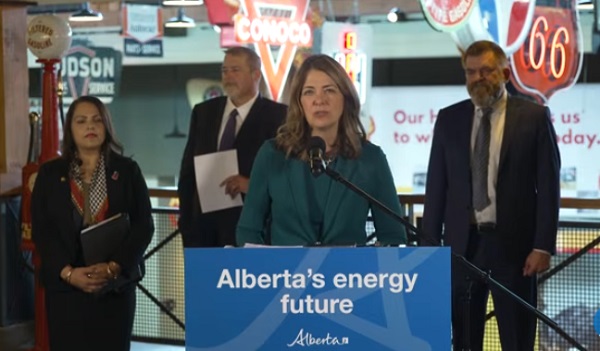Frontier Centre for Public Policy
Wokeism VS. classical liberal truth-based order at the root of Online Harms bill debate
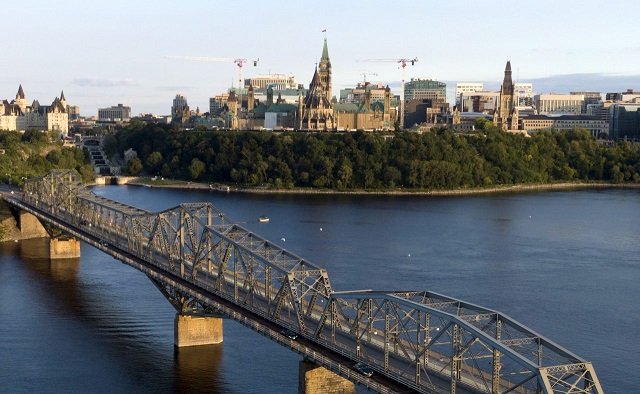
From the Frontier Centre for Public Policy
By Brian Giesbrecht, retired judge
You can be made a criminal as a result of someone’s emotional response to what you say or write online. A successful complainant can receive up to $20,000 for that anonymous complaint from the person complained about.
Wokeism versus the classical liberal truth-based order is what the discussion on the Online Harms Bill, C-63, is really about. Although some see it as a plot to undermine free speech, it may actually represent the legitimate view of progressives—wokeism—to promote social justice, as they see it. Prime Minister Justin Trudeau and his ministers—the first woke government in the history of Canada—sincerely believe in what they are doing. C-63 is wokeism at work.
I’m not talking about the sections designed to protect children from online harm. Everyone wants that. Whether or not the various digital safety commissars are necessary is questionable, but the politicians can sort that out. I’m referring specifically to the sections allowing anyone to anonymously make a complaint to the Canadian Human Rights Commission (CHRC) that someone has written or said something that is “hateful.” This is defined as causing someone to feel “detested” or “vilified.” You can be made a criminal as a result of someone’s emotional response to what you say or write online. A successful complainant can receive up to $20,000 for that anonymous complaint from the person complained about. And that person, who is now $20,000 poorer, can be ordered to pay a further $50,000 to the government after CHRC bureaucrats—appointed by the government—decide that he has hurt the feelings of the anonymous complainant.
We don’t have to imagine how this will work, because we have already seen it in action with Section 13, the previous incarnation of C-63. In one famous case, Ezra Levant, now of Rebel News, was the person complained about. He had dared to republish the infamous Danish cartoons of Mohammed. Someone complained, and Levant basically had years of his life, and most of his money, consumed with trying to defend himself.
The other famous Section 13 case related to the Islamist issue involved author and media personality Mark Steyn. His case was just as gruelling, time consuming, and expensive. Steyn eventually won, but at great cost in time and money.
Largely as a result of these cases, Section 13 was repealed by the Harper government. What had happened is that a commission with a particular view about Islamic issues had relentlessly prosecuted two men who legitimately held different views about the subject.
And that is exactly what we can expect with this resurrected version of Section 13.
It could be on Islamic issues where people have different views. Or it could be on a thousand other issues where people have different views.
The trans issue is one. The prime minister famously tweeted “Trans women are women.” That is a view held by many people. It is one of the fundamental tenets of progressivism—wokeism. However, many do not accept that view. How many? According to Professor Eric Kaufman, one-third of Canadians accept woke views, while two-thirds reject wokeism. This same two-thirds to one-third ratio also applies in Britain and United States. The one-third fervently believe that they must remake the world according to the way they know it must be, and that the two-thirds who don’t see it yet must be brought along.
So, with this proposed legislation, we see the problem immediately. Complaints will be made to the CMHR about a trans issue, for example, against someone within the two-thirds majority of the population who do not accept that “trans women are women” and that complaint will be adjudicated by mainly Liberal appointees—appointed in large part exactly because of their progressive views—who believe that “trans women are women.” The people complained about can expect to be treated the same way Levant and Steyn were treated: namely, being forced through lengthy and expensive hearings, simply for holding the same views that two-thirds of Canadians hold.
This is an absurd result. And the trans example is just one of many that can be expected to generate complainants. What about the belief that all indigenous complaints must be believed? This is the woke view, namely that the truthfulness of stories told within indigenous communities cannot be questioned in the usual way. The most dramatic example of this odd belief is the claim that 215 indigenous children were secretly buried at the former Kamloops Residential School, in some cases with the forced help of children as young as six. We were asked to believe this highly improbable claim simply because of stories that circulated within indigenous communities.
The Trudeau Liberals immediately accepted this baseless claim. A cabinet minister, Marc Miller, even publicly called a distinguished professor of history, Jacques Rouillard a “ghoul” for simply suggesting that it is in the interest of all Canadians that excavations should be undertaken at Kamloops to determine the truth. If a cabinet minister says such things, it can safely assumed that many other people are quite willing to lodge anonymous complaints against truth seekers, like this professor.
The prime minister actually gave an explanation of how he views free speech in a candid discussion with a journalist during the truckers’ convoy protest. He said that some Canadians—those opposing vaccine mandates and other forms of excessive government control—had “unacceptable views.” They must be stopped. Only “acceptable views”—his—would be allowed.
The problem with this simplistic view is that there are a myriad of subjects upon which people hold different views. Trudeau sincerely believed that these protesters were wrong, while the protestors just as sincerely believed that he was wrong. Imposing the Emergencies Act over a difference of opinion was an extreme move. We now know that what he did was unconstitutional. Bill C-63 is very similar to the use of the Emergencies Act. Both only make sense to the woke.
The classical liberal truth-based order, so painstakingly constructed, was built on free and raucous discussion. And that is the only way it can be maintained. That free discussion of ideas—no matter how offensive, “hateful,” or irksome they might be to people with different views—is vital to our democratic governance.
The woke view, on the other hand, insists that there are certain fixed ideas, such as systemic racism, trans women are women, etc., that must be accepted by everyone, at any cost.
That’s the fight that is underway now with the Online Harms Bill. One side—the one-third—say that they know the way, and everyone must follow. The other side—the two-thirds—say that no one “knows” the way, but only by free discussion can we find it. That free discussion of ideas is messy. People will have their feelings hurt by discussions that will not always be polite. But that’s exactly what has built our advanced civilization.
Wokeism versus classical liberal truth-based order. That’s what C-63 is about.
Children must be protected. Genocide is bad. No one argues with those things. But free speech must be protected. The one-third of the population who hold “woke” views are absolutely entitled to hold and express those views. But they cannot be allowed to prevent the two-thirds who view the world differently from expressing theirs.
Canadians are a trusting people, as Kaufman points out in the above article. And while the roughly two-thirds of the population that does not accept wokeism is identical to the two-thirds in Britain and United States, Canada is different from them in that our Conservative Party has been very reluctant to push back against wokeism, as the Conservatives do in Britain and the Republicans so vigorously do in America. The odd result is that the two-thirds non-woke Canadians tend to trust the one-third woke who have captured the media and our other major institutions. We saw that at work in the government control wielded during the COVID years. Bill C-63 can only make that tendency towards submission worse, by allowing only woke views—acceptable views—to be discussed publicly.
There will be some brave free-speech martyrs, like Levant and Steyn, who will be prepared to soldier on regardless of what legislation the current ideological government passes. But most people who would be inclined to push back against woke mantras—such as “a trans woman is a woman” or “all indigenous claims must be believed”—won’t, even if they know that the claims aren’t true. Canada will become the worse for it.
Wokeism is authoritarian, and will not tolerate free speech.
As drafted, Bill C-63 definitely contravenes Article 2 of the United Nations Declaration of Human Rights, which states that everyone has the right to their “political or other opinion.”
C-63, as drafted, is bad law. It must not be passed.
Brian Giesbrecht, retired judge, is a Senior Fellow at the Frontier Centre for Public Policy
Alberta
Ottawa’s Firearms Buyback Plan: Federal Government Puts Provincial Authority In Its Sights

From the Frontier Centre for Public Policy
It’s about politics and provinces are right to refuse to play along
Federal Public Safety Minister Gary Anandasangaree’s leaked admission that Ottawa’s firearms buyback is unenforceable was no slip. It exposed the way federal power is deployed for partisan gain while provinces are left to pay the bill.
The leak matters because it exposes a pattern, not an exception. Ottawa drafts policies to suit its politics and expects provinces to carry the weight. Police budgets, university research chairs, hospital systems and housing markets are treated as levers to be pulled from Ottawa. The effects are felt locally, but the decisions are made elsewhere.
Consider the pattern. The Online Harms Act, rejected more than once, is introduced yet again, as if repetition can substitute for consent. Health care dollars are tied to federal strings that reorder provincial systems with no regard for local capacity. Immigration quotas climb at a pace provinces cannot house or school. Environmental rules descend without negotiation, upending years of co-operative planning. Each measure arrives as an edict. Consultation is reduced to announcement.
Resistance has already begun. Saskatchewan moved early, adopting legislation that makes any federal confiscation program subject to provincial authority, including RCMP operations. In Alberta, Premier Danielle Smith has gone further, declaring flatly: “We will not allow police in Alberta to confiscate previously legal firearms. I have directed two of my ministers to relentlessly defend Albertans’ right to lawful and safe possession of firearms and the right to self-defence.”
Even before the introduction of the Sovereignty Act, Tyler Shandro, then Alberta’s justice minister, announced that the province would not use its police or prosecutors to carry out confiscations. Although former premier Jason Kenney opposed a Sovereignty Act, his government likewise refused to act as Ottawa’s enforcer.
Alberta and Saskatchewan have since given themselves legislative tools, Sovereignty Acts, which assert the right of provinces to decline enforcement of federal laws they judge unconstitutional. These statutes formalize existing constitutional powers. Provinces without Sovereignty Acts have also drawn lines. Ontario has signalled its refusal to help enforce Ottawa’s firearms program.
These positions are lawful, rooted in the Constitution’s division of powers, which assigns the administration of justice and policing to the provinces.
This clarity ought to attract others. Manitoba, with one of the highest proportions of licensed hunters in the country, has strong reason to resist Ottawa’s targeting of lawful gun owners. Communities are not made safer by seizing deer rifles from responsible hunters, nor are public services improved by diverting scarce provincial resources into a program that federal ministers concede will not work. Manitoba would do well to follow Alberta and Saskatchewan in defending its jurisdiction, whether through a Sovereignty Act or by refusing to play Ottawa’s game.
The point is practical. Prairie provinces cannot spare rural detachments to seize hunters’ rifles because the Liberal caucus fears losing seats in Montreal. They cannot put their power grids at risk to meet Ottawa’s timelines while households absorb higher bills. Universities cannot be turned into federal policy pilot projects. Provinces exist to govern their own communities, not to absorb the fallout of federal experiments.
The genius of federalism lies in the division of authority, which encourages compromise and minimizes tyrannical imposition. Ottawa governs in its sphere, provinces in theirs. Where the two overlap, cooperation must be negotiated, not imposed. Sovereignty Acts sharpen that principle. They remind Ottawa that partnership is earned, not dictated.
What Anandasangaree’s admission exposed was not only the cynicism of one firearms program. It revealed a method of governing: federal power deployed for partisan gain, with provinces reduced to instruments. That cannot endure. Canada was never meant to be a chain of command. It was built as a contract—one that requires respect for provincial authority.
Provinces that refuse to carry out Ottawa’s politically motivated projects are not weakening Canada; they are enforcing its terms.
Marco Navarro-Genie is vice-president of research at the Frontier Centre for Public Policy and co-author, with Barry Cooper, of Canada’s COVID: The Story of a Pandemic Moral Panic (2023).
Censorship Industrial Complex
When Did Traditional Values Become Hate Speech?
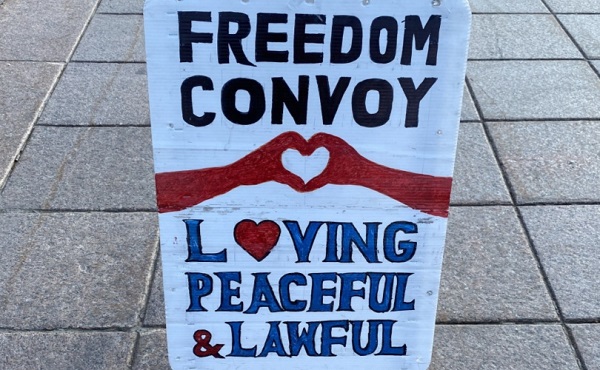
From the Frontier Centre for Public Policy
By Lee Harding
This smear campaign misrepresents peaceful dissent as dangerous radicalism, ultimately undermining trust in institutions and eroding civil debate. Ordinary Canadians are being branded as extremists for holding traditional values.
A disturbing trend has taken hold in Canada and across the Western world, where freedom-lovers and conservatives are categorized as extremists and potential terrorists.
Another headline-grabbing example took place on July 8 when RCMP spokeswoman Staff Sgt. Camille Habel told a CBC interviewer about an alleged militia plot to seize land in Quebec. She said if someone “believed in equal gender rights” but suddenly leaned towards “traditional values … that might be a sign that they’re becoming more extremist.”
Alas, some prominent people have gone so far left that traditional values are “far right” to them. Consider a 2021 report by the House of Commons Standing Committee on Public Safety and National Security. The document said “Ideologically motivated violent extremism [IMVE]… represents a societal issue requiring a whole-of-government approach.”
The document warned that since the pandemic, “IMVE activity has been fueled by an increase in extreme anti- authority and anti-government rhetoric often rooted in the weaponization of conspiracy theories. IMVE influencers promote misinformation and action, including violence.”
The report complained that some witnesses to the committee did not embrace the IMVE term, and instead used phrases such as the “far right” or the “far-right ecosystem.” Here, conservatives, conspiracy theorists and potential terrorists are one big, bad blog.
The tactic is old. In 1943, a Communist directive to American activists advised, “When certain obstructionists become too irritating, label them after suitable buildups as fascist or Nazi or anti-semitic, and use the prestige of anti-fascist and tolerance organizations to discredit them. In the public mind, we constantly associate those who oppose us with those names which already have a bad smell. The association will, after enough repetition, become fact in the public mind.”
This misrepresentation worked well against the Freedom Convoy. One mysterious person with a Nazi flag was enough to dismiss thousands of people as dangerous fascists. But spurious judgments like these malign many good people. This leads to misguided opposition against people who want to uphold Canada, not tear it down.
Trans-activists have their own form of name-shaming. They call out TERFs, meaning trans-exclusive radical feminists. These so-called TERFs believe that biological males have no place in women’s shelters, prisons and sports. This kind of disparagement is all too common. In September 2023, Canadian labour leaders and at least one researcher from a major university joined in a Zoom call to strategize against the 1 Million March 4 Children, a nationwide protest against transgender ideology in schools. A leaked video of the Zoom call showed these leaders and activists using terms like “fascist,” “intolerance,” “hate group,” “transphobic” and “homophobic” against parents and other citizens who wanted ideological concepts on gender kept out of school.
Meanwhile, the Canadian Anti-Hate Network (CAHN) blacklisted Campaign Coalition for Life as a “hate movement” after receiving $640,000 from the federal government to compile a list of allegedly hateful organizations and people.
“We define ‘hate-promoting’ to refer to ideologies, groups, movements and individuals which target members of protected groups,” explained the CAHN booklet entitled 40 Ways to Fight the Far-Right; CAHN even hosts a one-hour workshop that lays out “the intersection between hate, the far right, and conspiracy theories.”
This mirrors the United States where the left-leaning Southern Poverty Law Centre (SPLC) first made a list of bad organizations in 1990. Since 2000, the organization has compiled a “hate map” of these groups, which now number 835. As one example, SPLC calls the Family Research Council an “extremist” “hate group” due to their pro-life, pro-traditional marriage stances.
During Barack Obama’s second term as president, the Department of Defense (DoD) incorporated SPLC assessments into its training on domestic terrorism, leading to undue smears. In 2013, a DoD training presentation at Fort Hood, Texas, listed “Evangelical Christianity,” “Catholicism” and “Tea Party” as fostering extremism. In 2014, soldiers at Fort Bragg in North Carolina were told similar things about pro-gun and pro-life organizations.
In 2015, watchdog organization Judicial Watch openly called on the DoD to stop relying on the “anti-Christian” SPLC for its definitions, saying the group itself was hateful.
A teaching module presented to 9,100 soldiers at Fort Liberty through 2024 labelled National Right to Life and Operation Rescue as potential terrorist threats. Congressional Republicans protested this politicization of military training. In response, an army spokesperson echoed disclaimers made 10 years ago, saying the slides were not policy and were improperly vetted.
In July 2025, Army Secretary Dan Driscoll called it a “grievous error” to equate conservative groups with terrorists and vowed it would never happen again. Unfortunately, Canadians have no such assurances.
Lee Harding is a research fellow with the Frontier Centre for Public Policy.
-
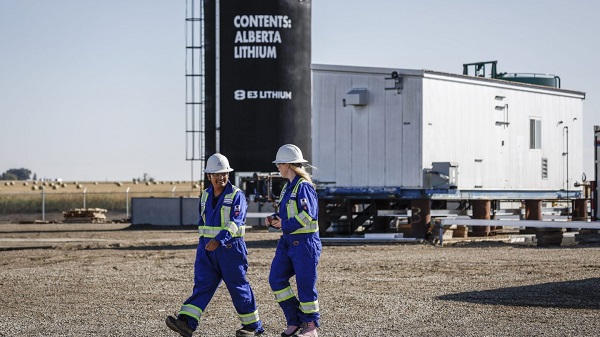
 Alberta2 days ago
Alberta2 days agoAlberta’s E3 Lithium delivers first battery-grade lithium carbonate
-

 Automotive2 days ago
Automotive2 days agoCanada’s EV subsidies are wracking up billions in losses for taxpayers, and not just in the auto industry
-
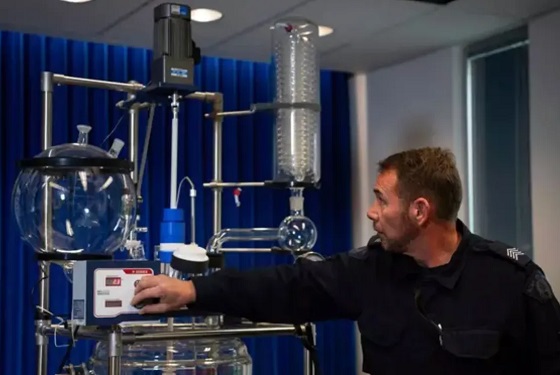
 Crime1 day ago
Crime1 day agoThe “Strong Borders Act,” Misses the Mark — Only Deep Legal Reforms Will Confront Canada’s Fentanyl Networks
-
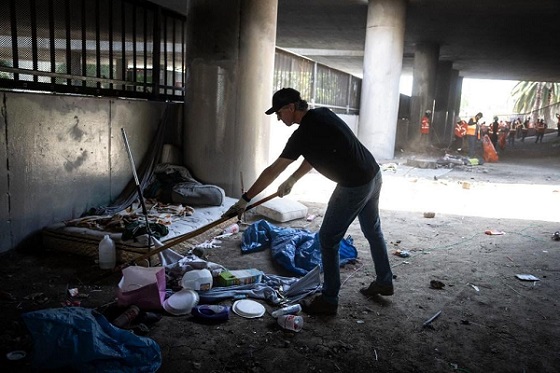
 Business2 days ago
Business2 days agoLA skyscrapers for homeless could cost federal taxpayers over $1 billion
-

 Agriculture20 hours ago
Agriculture20 hours ago“We Made it”: Healthy Ostriches Still Alive in Canada
-
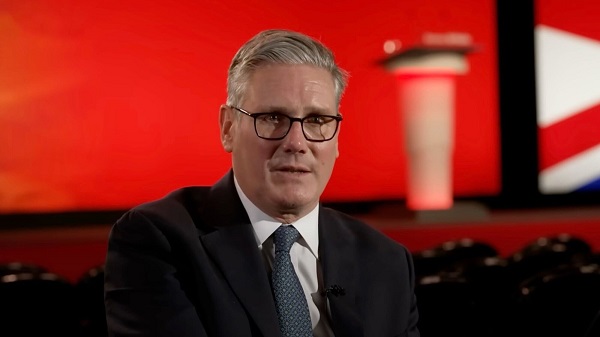
 Business1 day ago
Business1 day agoUK Government Dismisses Public Outcry, Pushes Ahead with Controversial Digital ID Plan
-

 Energy2 days ago
Energy2 days agoNuclear power outperforms renewables every time
-

 Artificial Intelligence2 days ago
Artificial Intelligence2 days agoAI chatbots a child safety risk, parental groups report
